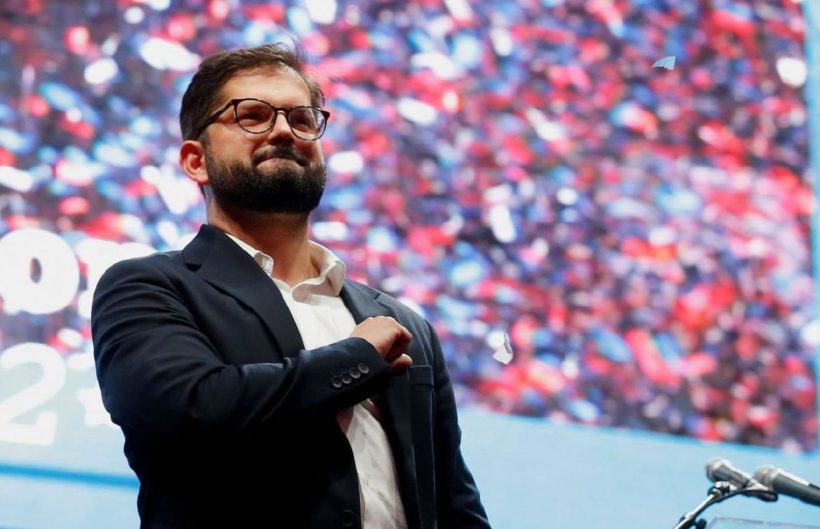This article is part of issue 0 of the recently launched humanist magazine Ciclos.
Many analyses have been made of last December’s presidential election in Chile, where Gabriel Boric won at the polls with historic popular support that surpasses even what the candidate’s own supporters could have imagined. In this sense, an important variable for the victory was undoubtedly the participation of young people in the face of the dilemma between the candidacy of Boric and the former candidate Kast, the latter being the representative of the country’s most conservative right-wing.
But what is the reason for this reaction of the youth to the call to vote for Boric and leave behind the threat of Kast? Because it was simply a reaction to the results of the first round, where the scenario was truly adverse for the next President of the Republic. In that scenario, the candidate Kast won the election, albeit narrowly over Boric, demonstrating that the polls and projections of a significant growth of the far-right was demonstrated in a convincing way in votes. Faced with this result, massive support for the Apruebo Dignidad candidate was unleashed, a support that went beyond those who genuinely supported the candidate, not least those who, faced with the threat of Kast, immediately joined Gabriel’s campaign.
Faced with this scenario, what role did the youth play? In my opinion, youth played a role in accordance with what young people have historically meant for social processes. A role that is typical of the generational dialectic of advancing towards change or maintaining the status quo, of embracing ideas of profound transformation and respect for all people, regardless of gender, sexual orientation, origin, etc. A youth, which in the Chilean case participated strongly in the popular revolt of 2019, but also in the student struggle of 2011 and 2006. With this I want to get to the idea that there is a generation, the under-35s, who are aware of the different struggles that have arisen in recent times. Here the feminist movement stands out in an important way, which in its latest wave has transformed in an important way those forms and treatments that patriarchy has historically imbued societies with. And so on, passing through the ecological struggle, sexual dissidence, animal rights, among others.
The reaction is strengthened because those freedoms won and those with which this generation was born – thanks to the struggle of previous generations – were in danger. It was almost impossible to imagine living under a regime that belittles the role of women in society, that discriminates directly or underhandedly against sexual dissidence, and thus, in short, a regime of terror for the future of a generation accustomed to living with these personal freedoms that were being questioned by a political sector.
We might think that perhaps it did not matter so much who the candidate was in opposition to the far right. However, we should not underestimate the importance of the symbol of Boric and the conglomerate that put him forward as a candidate, because beyond the legitimate differences that one might have with that sector, they knew how to interpret in electoral terms the political and social process that had been unleashed after the popular uprising. And among the characteristics of Gabriel’s candidacy, his youth stood out, which was criticised by his opponents; however, this aspect did not resonate beyond the most conservative sectors.
The youthfulness of Gabriel and the team that accompanied him in his campaign was a great asset in the face of a society tired of the same old faces, where young people had been neglected. Apruebo Dignidad represents not only a political change, but also a generational change, although within this generation there is not exclusively one generation, but there is no doubt that it accompanies a process that has been fundamentally raised in recent times by young people.
Gabriel’s performance in his second round campaign and the subsequent result that gave the Magellanic candidate victory, was strongly driven by the youth that through different media got involved in the campaign, either in the territory, as well as through social networks; the latter being a space where creativity and stimulation of the digital world contributed significantly to the dissemination of the campaign, because at the time that people took ownership of the campaign and this was decentralised, it managed to generate the mystique that in the first round had not resulted.
The phenomenon of Gabriel Boric will surely be of interest to many analysts, because the mantle of expectations that the public has covered him represents a great responsibility for the next government, but also for a generation that for the first time since the dawn of the country is taking charge of the country’s destiny. It will be a moment of great hope, but one that will bring difficulties, and here the question is whether the youth that supported Gabriel will have the same impetus to defend his government and proposals in a scenario of foreseeable political complexity. For now, we can conclude that the interest of a particular generation was able to turn the needle in an election that was expected to be close, but which nevertheless ended up being a resounding triumph for progressive proposals against the radical conservatism it opposed.
Oscar Oyarzo Hidalgo
22 years old
Former Secretary General of the Law Students’ Centre of the University of Chile.
Spokesperson for Humanist Action
Humanist Students Coordinator












